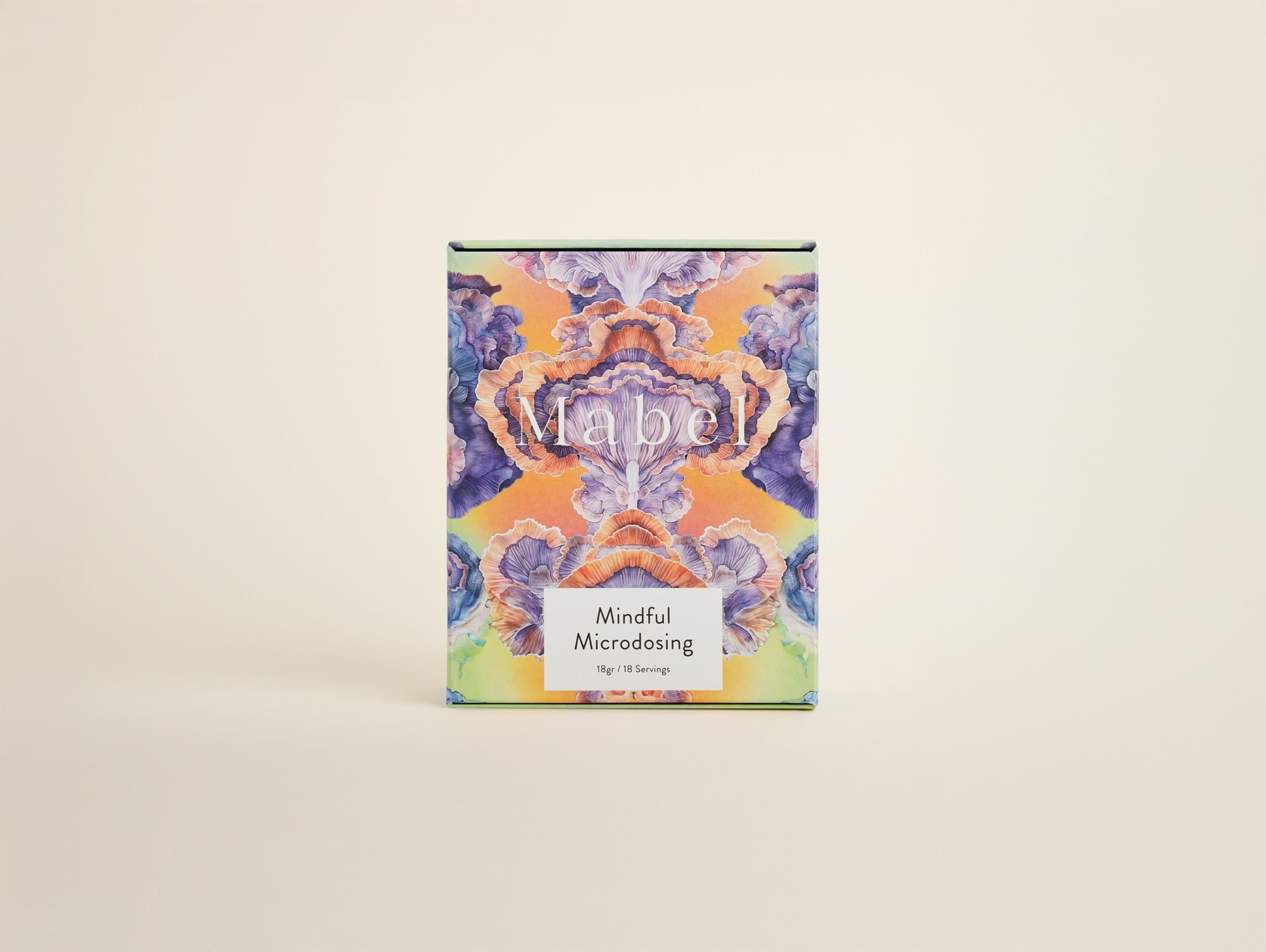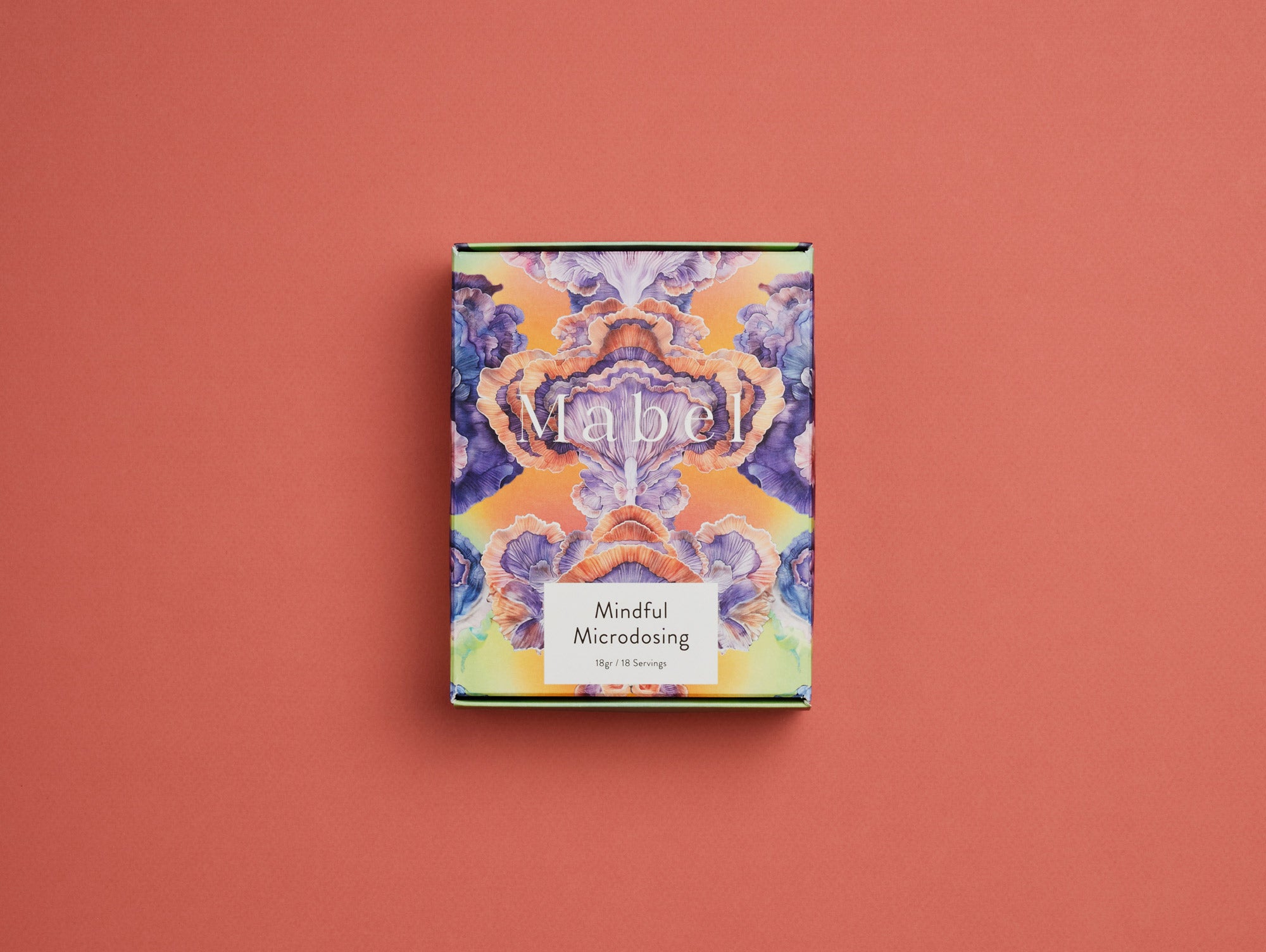A Gentle Inquiry: Exploring Microdosing Psilocybin for ADHD
If you're here, you may be familiar with the daily challenges of living with Attention-Deficit Hyperactivity Disorder (ADHD). You likely know the unique strengths it can bring, creativity and boundless energy, but also the persistent complications it can present with, such as inattention, hyperactivity, and impulsivity, and difficulty with emotional regulation. These complications could lead to problems in personal and professional lives of the person living with ADHD, complicating their relationships, learning abilities, or work commitments.
For most, the quest for effective and sustainable support is long, and the search for alternatives beyond conventional treatments is gaining momentum. In recent years, a new conversation has emerged in wellness and scientific communities, centering on the potential of microdosing psychedelic compounds, explored for various mental health conditions, including ADHD.
Here we aim to provide a clear, balanced, and informative guide to the current understanding of microdosing for ADHD. We will explore some individual reports and observational studies, delve into the early scientific studies, and—most importantly—examine recent clinical trial evidence that provides a crucial dose of science.

The Allure of Microdosing: Why Are People Interested?
The interest in microdosing for ADHD is largely driven by personal reports and early-stage observational research. In these "naturalistic" studies, scientists observe people who have chosen to microdose on their own. A major recent review of 57 studies found that these reports often point towards a variety of benefits. The findings paint an intriguing picture of potential benefits:
-
Reduced Core ADHD Symptoms: in a study where adults with severe ADHD symptoms microdosed for four weeks, they reported a significant decrease in inattention and hyperactivity, even more so than a group of people using conventional medication.
-
Improved Mental and Emotional Well-being: A large-scale study published in Nature surveyed individuals who microdose. It found that health and wellness were primary motivators. Among participants with mental health concerns, those who microdosed reported lower levels of depression, anxiety, and stress compared to those who did not.
-
Enhanced Social Functioning: Many users report enhanced sociability and feelings of connectedness. One study on adults with severe ADHD noted self-reported improvements in empathy and emotion regulation.
-
Enhanced Mindfulness and Decreased Neuroticism: A key challenge in ADHD is regulating attention and being present. A 2023 study in Frontiers in Psychiatry followed adults with ADHD who were microdosing and found a significant increase in "trait mindfulness" after four weeks. Specifically, participants reported being better able to describe their inner experiences and adopt a less judgmental stance toward their thoughts and feelings. The same study noted another important change: a decrease in neuroticism, a personality trait linked to anxiety, moodiness, and stress sensitivity. This aligns with reports of improved emotional regulation.
-
A Complex Picture on Cognition: While a lot of users often report enhanced focus, concentration, and productivity, these findings are inconsistent, and some individuals in fact, also report adverse cognitive effects, such as difficulty concentrating, cognitive disruption, racing thoughts, and confusion (which might very well have to do with the dose of the psychedelic).
It's important to note that, for a small number of participants, some mild negative outcomes have been mentioned. Some users have reported issues like mood instability, increased anxiety, and physical discomfort alongside the benefits they perceive. Some of these negative outcomes are most likely related to the individual's environment, mindset, and the dose of the psychedelic that is used for microdosing, and can be mitigated with preparations and other strategies, and in turn increase the positive benefits. Mabel’s educational program, and consistency in the dosages of the truffles have been designed and developed to do just that; minimise the undesired, and maximise the positive benefits.
These naturalistic findings are valuable. They tell us that a significant number of people with ADHD feel that microdosing helps them, and they point researchers toward specific areas, like mindfulness and emotion, to investigate further.
Similarly, our clients have reported the positive outcomes:
Lindi: “I am in love with [Mabel’s] product. Both my husband and I am ADHD so our minds think way too much and this has completely changed the way our brains handles stress and anxious situations. I am more happier and feel and can take on anything. I take it while I work and it makes a big difference on my productivity. I am so grateful for Mabel for making such an amazing product!”
Karolina: “Mindful Microdosing is a true game changer and a true gift. In the now 7 weeks of microdosing, I've experienced a huge change in every aspect of my life. A wonderfully upleveled self esteem, higher energy levels, calmness and focus. As a woman with ADHD and in the midst of her perimenopausal adventure… I'm just so grateful!”
Marisa: “It’s really good and recommendable. The first month I felt more focus, specially having ADHD.”
Holistic Approach; Fungi Need Set and Setting to Work
There are other dimensions to the microdosing practice.
A landmark 2024 study published in JAMA Psychiatry explored how microdosing psychedelics affects adults with ADHD. The goal was to understand what components of the practice contribute to the benefits many people report. Researchers gave one group of adults with ADHD a microdose twice a week for six weeks. A second group received an identical-looking placebo.
Similar to the naturalistic findings, the microdose group improved their ADHD symptoms. But it was surprising that the placebo group also showed similar reductions in their ADHD symptoms. Importantly, this result does not suggest that microdosing is ineffective. Rather, it highlights that the benefits of microdosing come from more than just the chemical properties of the substance. The participants' belief and expectation were powerful contributors to their improvement, which confirms the critical importance of a person's mindset ("set") and environment ("setting"). The routine and ritual of the practice, the hope and manifestation for a positive outcome, and the simple act of self-monitoring are all powerful elements of the healing process.
This research shifts the focus from looking at a substance alone (pure pharmacological), to understanding it as part of a larger, more holistic practice. It validates the idea that a structured approach—one that carefully considers intention, environment, and personal guidance—is key to unlocking the potential benefits of microdosing.
"That's why at Mabel, we've developed a guided and dedicated program, to work alongside microdosing truffles, to help you cultivate the supportive mindset and intentional framework needed to make your journey a meaningful one, and get lasting, positive change."

A Look Inside the Brain: How Might It Work?
The question of a potential biological mechanism remains unanswered. The leading theory centres on how psychedelics interact with the brain's serotonin system, specifically the 5-HT₂A receptor.
These receptors are present in the prefrontal cortex (PFC), the brain's "CEO" responsible for executive functions like planning, focus, and emotional control, all areas where ADHD presents challenges. It is hypothesized that stimulating these receptors could:
-
Strengthen Executive Function: By changing the activity in the PFC, it may enhance focus and impulse control.
-
Quiet the "Default Mode Network" (DMN): The DMN is active when our minds wander. In ADHD, this network can be overactive, making it hard to stay on task. Psychedelics are known to decrease DMN activity, which could possibly create more mental space for focused attention.
The Path Forward: Cautions and a Balanced Perspective
So, where does this leave us? The exploration of microdosing for ADHD is at a fascinating and critical juncture. While a lot of benefit is reported from individuals on many aspects of ADHD management, which warrants further exploration and research, it is also important to highlight limitations for a balanced view:
-
The Science: Naturalistic data often report positive benefits. Controlled studies highlight the importance of set and setting, and taking a holistic approach, in maximizing the positive effects of these compounds.
-
Adverse Effects, Sometime, Happen: Although generally safe for most people, there may be side effects, which are mostly mild and short-lived. For some people, there could be psychological adverse effects, including anxiety, distractions, and cognitive disruption, as well as physiological effects such as sleep disturbances.
These are reported in small numbers, and mostly could be fixed by adjusting the amount of truffles and time of taking the microdose, as well as mental and environmental preparation; start low, go slow, and respect your own body’s signals to minimize any, negative, albeit rare, effects.
It’s also important to avoid microdosing if there are serious underlying conditions or medications, a personal or family history of psychosis (like schizophrenia) or bipolar disorder, or other serious neurological or cardiovascular conditions are strongly advised to avoid them, as they could trigger or worsen these conditions.
Because there hasn’t been much research on combining microdosing with ADHD medication, it’s important to approach this carefully. If you’re already taking ADHD medication, please continue as prescribed. Any changes, whether to your medication or by adding microdosing, are best made with caution and ideally with the support of a healthcare professional you trust.
In conclusion, the individual stories and early observational studies are compelling and have rightly inspired research and personal explorations. However, more recent and controlled studies do not strongly support microdosing for ADHD, the same as the naturalistic studies do. The conversation has shifted. The question is no longer just "Does it work?" but “why do so many people feel like it works?". The focus has moved toward uncovering the specific conditions and mechanisms through which microdosing may support and ease ADHD symptoms, and better understanding who stands to benefit most. It also raises a bigger question: are the traditional ways studies are designed truly able to capture the depth and complexity of how microdosing psychedelics work?
Answering these will teach us more about the power of belief, ritual, and the profound human desire for healing and focus. For those of us navigating the challenges of ADHD, it's a reminder to approach new trends with cautious optimism and a balanced hope in the steady, careful process of scientific inquiry and open-minded curiosity, while remaining grounded in safe practices if and when we decide to embark on a microdosing journey.
Amir Lotfi, Chief Scientific Officer & Neuroscientist

References
-
Haijen, E. C. H. M., Hurks, P. P. M., & Kuypers, K. P. C. (2024). Effects of psychedelic microdosing versus conventional ADHD medication use on emotion regulation, empathy, and ADHD symptoms in adults with severe ADHD symptoms: A naturalistic prospective comparison study. European Psychiatry, 67(1), e18. https://doi.org/10.1192/j.eurpsy.2024.8
-
Haijen, E. C. H. M., Hurks, P. P. M., & Kuypers, K. P. C. (2022). Microdosing with psychedelics to self-medicate for ADHD symptoms in adults: A prospective naturalistic study. Neuroscience Applied, 1, 101012. https://doi.org/10.1016/j.nsa.2022.101012
-
James Perry, Cara Young, Julie Williams (2024). Psilocybin as a First-Line Treatment of ADHD in Adult Populations. Archives of Clinical Neuropsychology, Volume 39, Issue 7, Page 1154. https://doi.org/10.1093/arclin/acae067.222
-
Mueller L, Santos de Jesus J, Schmid Y, Müller F, Becker A, Klaiber A, Straumann I, Luethi D, Haijen ECHM, Hurks PPM, Kuypers KPC, Liechti ME. Safety and Efficacy of Repeated Low-Dose LSD for ADHD Treatment in Adults: A Randomized Clinical Trial. JAMA Psychiatry. 2025 Jun 1;82(6):555-562. doi: 10.1001/jamapsychiatry.2025.0044. PMID: 40105807; PMCID: PMC11923771.
-
Iva Totomanova, Eline C.H.M. Haijen, Petra P.M. Hurks, Johannes G. Ramaekers, Kim P.C. Kuypers, (2025) Between enhancement and risk: A critical review of psychedelic microdosing, Current Opinion in Psychology, 66, ISSN 2352-250X, https://doi.org/10.1016/j.copsyc.2025.102129.
-
Haijen ECHM, Hurks PPM and Kuypers KPC (2023) Trait mindfulness and personality characteristics in a microdosing ADHD sample: a naturalistic prospective survey study. Front. Psychiatry. 14:1233585. doi: 10.3389/fpsyt.2023.1233585
Our Microdosing
Psilocybin microdosing has gained real momentum over the past decade for its unique ability to gently disrupt negative thought loops and ruminative patterns, offering a sense of reset and renewed perspective, especially for people who haven’t felt helped by more traditional approaches
Read more

We sat down with our wonderful Shauna Shapiro, the teacher in your Mindful Microdosing Program for a chat about what Mindfulness really means and how we can use it in our daily lives. Shauna shap...

Lion’s Mane: A Psychosomatic Psychobiotic for Gut–Brain Balance Brain fog. Low mood. Restless sleep. Digestive tension that never fully clears. For many, these symptoms seem unrelated — one mental,...




